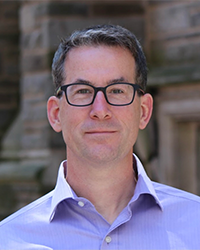< Return to program overview
Keynote 3
|

Duncan Hollis
Duncan Hollis is Laura H. Carnell Professor of Law at Temple Law School, Faculty Co-Director of Temple University’s Institute for Law, Innovation & Technology, and Co-Convenor of The Oxford Process on International Law Protections in Cyberspace. His scholarship engages with issues of international law, with a particular emphasis on treaties, norms, and other forms of international regulation. He is editor of the award-winning The Oxford Guide to Treaties as well as Defending Democracies: Combatting Foreign Election Interference in a Digital Age with Dean Jens Ohlin, plus a leading U.S. textbook, International Law with Professors Allen Weiner and Chimene Keitner. Professor Hollis is an elected Member of the American Law Institute, where he serves as an Adviser on its project to draft a Fourth Restatement on the Foreign Relations Law of the United States. From 2016-2020, he served as a member of the OAS’s Inter-American Juridical Committee, including as Rapporteur for a project on improving the transparency of State views on international law’s application to cyberspace.
Abstract
Keynote
Aligned or Unaligned? Geopolitics and the International Law in Cyberspace
Has international law developed a shared “language” for governing cyberspace? Professor Hollis’s talk examines more than a quarter century of diplomatic dialogues, official statements, and public attributions to trace the emergence of such a language. He will highlight growing alignment on international law’s application to cyberspace—particularly in relation to cybercrime, existential questions of legal operation, collective attribution practices, and official statements, especially within the EU. At the same time, his remarks will aim to identify areas of dis-alignment, including ongoing debates over sovereignty and interpretation, the persistent silence of many states on these issues, and the siloed thinking that continues to separate issues of cybercrime, from State sponsored cyber operations, and the rise of AI online. Professor Hollis will conclude by looking ahead to the future of the UN’s new permanent mechanism, the potential for alternative forums to advance dialogue, opportunities for treaty-making that protect people from states, and the promise of peaceful dispute settlement as a means for clarifying how we talk about international law across the digital ecosystem.